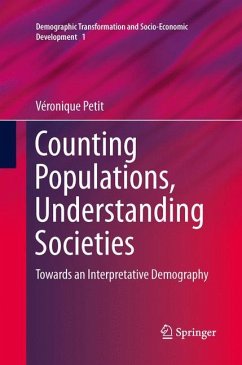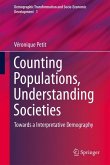The core aim of this book is to determine how anthropology and demography can be used in conjunction in the field of population and development.
The boundaries of demography are not as clearly defined or as stable as one might think, especially in view of the tension between a formal demography centered on the 'core of procedures and references' and a more open form of demography, generally referred to as Population Studies.
Many rapprochements, missed opportunities and isolated attempts marked the disciplinary history of anthropology and demography, both disciplines being founded on distinct and highly differentiated traditions and practices. Moreover, the role and the place assigned to epistemology differ significantly in ethnology and demography. Yet, anthropology and demography provide complementary models and research instruments and this book shows that neither discipline can afford to overlook their respective contributions.
Based on research conducted in West Africa over more than twenty years, it is a defense of field demography that makes case for a continuum ranging from the initial conception of fieldwork and research to its effective implementation and to data analysis. Changes in behaviors relating to fertility, poverty or migration cannot be interpreted without invoking the cultural factor at some stage. Representations in their collective and individual dimensions also fit into the extended explanatory space of demography.
The boundaries of demography are not as clearly defined or as stable as one might think, especially in view of the tension between a formal demography centered on the 'core of procedures and references' and a more open form of demography, generally referred to as Population Studies.
Many rapprochements, missed opportunities and isolated attempts marked the disciplinary history of anthropology and demography, both disciplines being founded on distinct and highly differentiated traditions and practices. Moreover, the role and the place assigned to epistemology differ significantly in ethnology and demography. Yet, anthropology and demography provide complementary models and research instruments and this book shows that neither discipline can afford to overlook their respective contributions.
Based on research conducted in West Africa over more than twenty years, it is a defense of field demography that makes case for a continuum ranging from the initial conception of fieldwork and research to its effective implementation and to data analysis. Changes in behaviors relating to fertility, poverty or migration cannot be interpreted without invoking the cultural factor at some stage. Representations in their collective and individual dimensions also fit into the extended explanatory space of demography.








